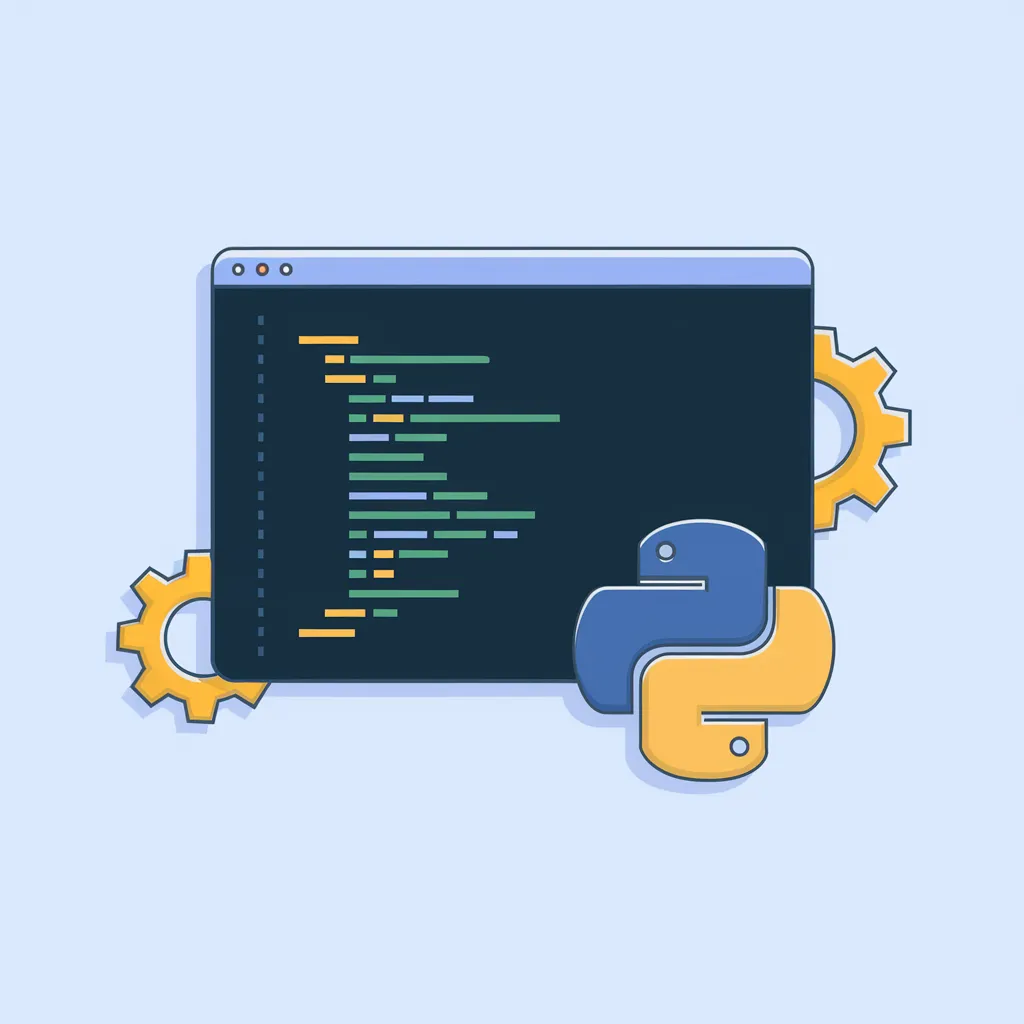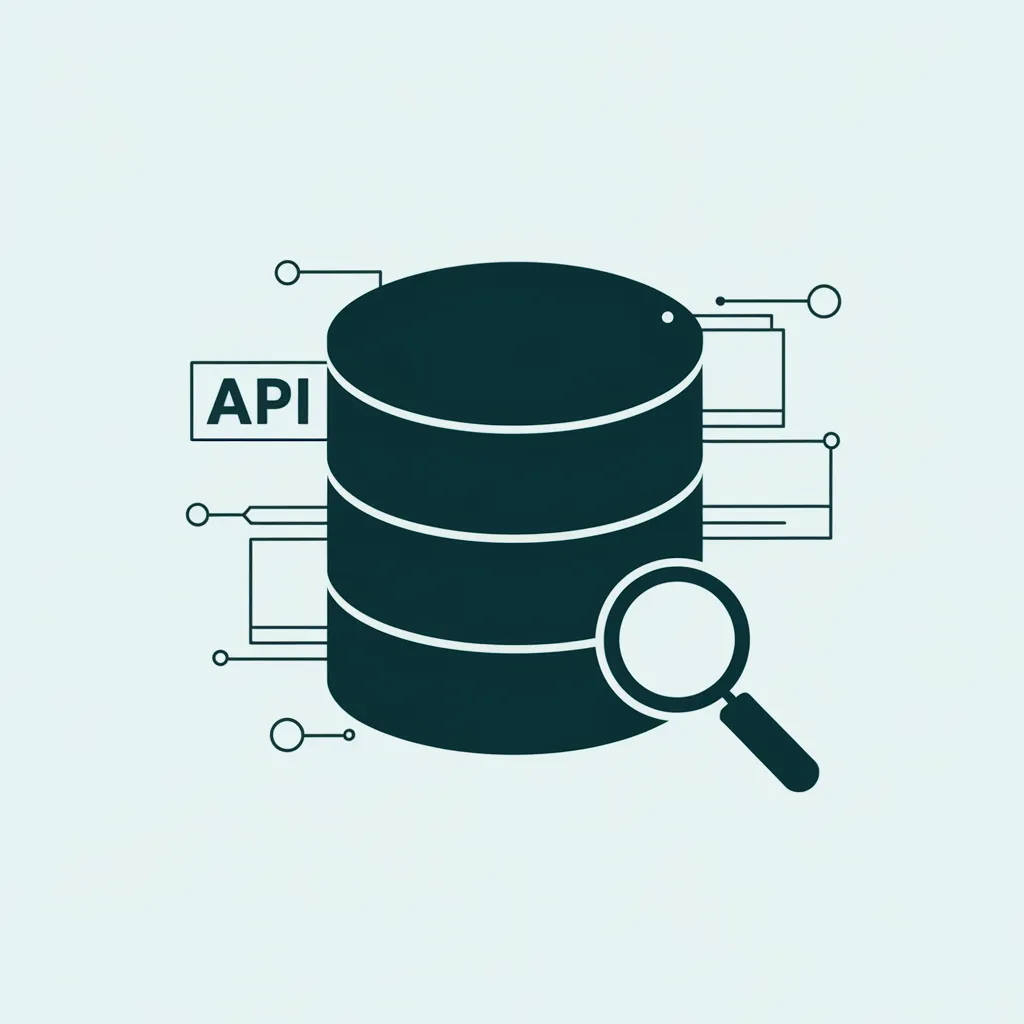Chat History
No chat history yet. Start a new conversation!
Python Generator by Chat100.ai: Effortless Python Code Generation
Generate, optimize, and deploy Python code with ease using Chat100.ai's Python Generator.

Hello! I'm your Python coding genius—let's build something amazing! 🔨🤖🔧
Key Features of the Python Generator by Chat100.ai

🚀 Code Generation
Generate Python scripts for a variety of tasks, including automation, data analysis, API integrations, and machine learning. With the Python Generator, you get clean, efficient code ready to run in just a few clicks.

🔧 Debugging and Optimization
Fix bugs, optimize performance, and enhance the quality of your code. Whether it's identifying inefficiencies or making your code run faster, our Python Generator helps you improve your scripts with ease.

💡 Complex Algorithm Implementation
Solve complex algorithmic challenges such as sorting algorithms, search algorithms, and neural networks. Our Python Generator can handle it all and provide you with efficient solutions.

⚙️ Project Creation and Structuring
Start new Python projects with a well-structured foundation. Get guidance on the best practices for directories, modules, and organization, ensuring your project grows smoothly and efficiently.
How to Use the Python Generator by Chat100.ai
Step 1: Define Your Task
Simply describe the Python task you need help with—whether it's automation, data analysis, or building a machine learning model. The more details you provide, the more tailored your code will be.
Step 2: Receive Code with Explanations
Get Python code generated for your task, complete with explanations, optimizations, and suggestions for further improvements. You can instantly use it or adjust it to fit your needs.
Step 3: Implement, Test, and Iterate
Copy the generated code into your project, run tests, and make necessary adjustments. If issues arise, you can return for more debugging or optimization assistance.
Who Can Benefit from Chat100.ai's Python Generator?
🎓 Students and Learners
Students studying Python or computer science can use the Python Generator to understand code structure, optimize solutions, and learn by seeing detailed explanations for complex code.
💼 Professionals and Developers
Python developers can save time by automating code generation for mundane tasks or solving algorithmic challenges efficiently. The Python Generator helps enhance productivity and focus on complex problems.
📊 Data Analysts and Scientists
With data manipulation capabilities, Python Generator makes it easy for analysts and scientists to generate code for data processing, analysis, and visualization using libraries like pandas, numpy, and matplotlib.
🚀 Startup Founders and Entrepreneurs
Startups building MVPs can quickly generate backend code, API integrations, and web scraping scripts without the need for hiring extensive programming teams, saving time and resources.
What Our Users Say About Python Generator
The Python Generator has completely changed how I approach coding. It saves me hours of work on automation and debugging tasks, and the code quality is excellent!
John Doe
Software Engineer
I use Python Generator for data analysis scripts. It simplifies complex operations and provides optimized code that runs faster. It's a real time-saver.
Alice Smith
Data Scientist
As a full-stack developer, this tool is incredibly useful for generating API integrations and backend code. I can't imagine working without it.
Mark Johnson
Full Stack Developer
From machine learning models to neural networks, the Python Generator helps me implement complex algorithms quickly and efficiently. It's a game-changer for my work.
Sophia Lee
AI/ML Specialist
Related Searches
Python generator AI refers to tools powered by artificial intelligence that can generate Python code automatically. Platforms like Yeschat AI's Python Generator enable users to input prompts or requirements and receive accurate, efficient, and ready-to-use Python scripts. Such tools are particularly beneficial for developers, students, and data scientists who want to automate tasks, solve problems faster, or learn Python programming with minimal effort. By leveraging AI, these generators save time and improve coding precision.
Python generator AI
In Python, a generator is a specific type of iterator that is defined using generator functions or expressions. Generator functions use the `yield` keyword to return values lazily. The type of a generator object can be identified using the `type()` function, which will display `
Python generator type
A generator expression in Python is a concise way to create a generator object. It looks similar to a list comprehension but uses parentheses instead of square brackets. For example, `(x * x for x in range(10))` creates a generator that produces squares of numbers from 0 to 9. Generator expressions are memory-efficient because they compute values lazily, generating each value on demand. This makes them an excellent choice when dealing with large datasets or when you don’t need to store the entire output in memory.
Python generator expression
Here’s a simple example of a Python generator: ```python def count_up_to(n): i = 1 while i <= n: yield i i += 1 counter = count_up_to(5) for number in counter: print(number) ``` This generator function `count_up_to` yields numbers from 1 to `n`. When iterated, it generates each value on demand. Generators like this are ideal for scenarios where you need to work with sequences of data efficiently without loading everything into memory.
Python generator example
In Python, you can convert a generator into a list by passing it to the `list()` constructor. For example: ```python generator = (x * x for x in range(5)) result = list(generator) print(result) ``` This will output `[0, 1, 4, 9, 16]`. While this approach is useful for generating a list of values from a generator, it forfeits the memory efficiency of the generator, as all values are stored in memory at once. Use it only when the dataset is small or when you specifically need a list.
Python generator to list
Generators and iterators are closely related in Python. An iterator is any object that implements the `__iter__` and `__next__` methods, allowing you to traverse through its elements. A generator is a simpler way to create an iterator using the `yield` keyword. Generators automatically implement the iterator protocol, making them more concise and memory-efficient than manually creating custom iterators. The key advantage of generators is their lazy evaluation, which allows them to generate values on demand without storing the entire sequence in memory.
Python generator vs iterator
A generator object in Python is created when a generator function (a function containing `yield`) is called. This object adheres to the iterator protocol and produces values lazily as you iterate through it using a loop or the `next()` function. Generator objects can be identified using `type()`, which will return `
Python generator object
In Python, the `next()` function retrieves the next value from a generator. For example: ```python def simple_generator(): yield 1 yield 2 yield 3 gen = simple_generator() print(next(gen)) # Output: 1 print(next(gen)) # Output: 2 ``` Calling `next()` advances the generator to the next `yield` statement. If there are no more values to yield, a `StopIteration` exception is raised. This manual control over iteration can be useful when you want fine-grained access to the values generated.
Python generator next
Frequently Asked Questions
What is a generator in Python?
A generator in Python is a special type of iterable that allows you to iterate over values one at a time. Unlike normal functions that return a single value, a generator uses the `yield` keyword to produce a series of values lazily as they are requested. Generators are memory-efficient because they don’t store the entire sequence in memory; instead, they generate each value on the fly. This makes them ideal for working with large datasets or infinite sequences. They are created using generator functions (functions containing `yield`) or generator expressions, which look like list comprehensions but use parentheses instead of square brackets.
Is Python generator lazy?
Yes, Python generators are inherently lazy, which means they generate values only when needed. This lazy evaluation allows generators to save memory and improve performance, especially when working with large datasets or infinite sequences. Instead of precomputing all the values and storing them in memory, a generator computes the next value only when the `next()` function or a loop demands it. This feature is particularly useful for handling streams of data or creating pipelines where intermediate results are not stored in memory unnecessarily.
Is there a Python code generator?
Yes, Python code generators exist, and they allow developers to automatically generate Python scripts or specific code snippets. Tools like Yeschat AI's Python Generator simplify coding tasks by creating syntactically correct and optimized Python code based on user input. These generators can assist with common use cases like building boilerplate code, creating data structures, generating functions, or automating repetitive coding patterns. This saves time, reduces errors, and enhances productivity for developers at any skill level.
What is the difference between a generator and a decorator in Python?
Generators and decorators in Python serve different purposes. A generator is a function that produces a sequence of values lazily using the `yield` keyword, which allows efficient memory usage and on-demand value generation. A decorator, on the other hand, is a function that modifies or enhances the behavior of another function or method without changing its source code. Decorators are commonly used for logging, access control, or modifying function output. While generators are about generating data, decorators focus on extending or wrapping functionality.
What can the Python Generator do?
The Python Generator can help you generate Python code for tasks like automation, data analysis, machine learning, web scraping, and much more. It also provides debugging and optimization tools.
Is it free to use?
Yes! The Python Generator is completely free to use, with no login required.
How accurate is the generated code?
The Python Generator produces highly accurate code based on your input. It is optimized for performance and adheres to best practices, but we recommend reviewing and testing it in your environment.
Can the generator help with machine learning tasks?
Absolutely! The Python Generator can assist with machine learning tasks by providing code for data preprocessing, model creation, and training using popular libraries like scikit-learn and TensorFlow.
What if I need to debug the generated code?
The Python Generator includes debugging features to help you identify and fix issues in your code. You can also request further optimizations for better performance.
How does the Python Generator work?
Simply describe your task, and the Python Generator will create Python code for it, along with explanations, optimizations, and suggestions. It's easy to integrate into your workflow.